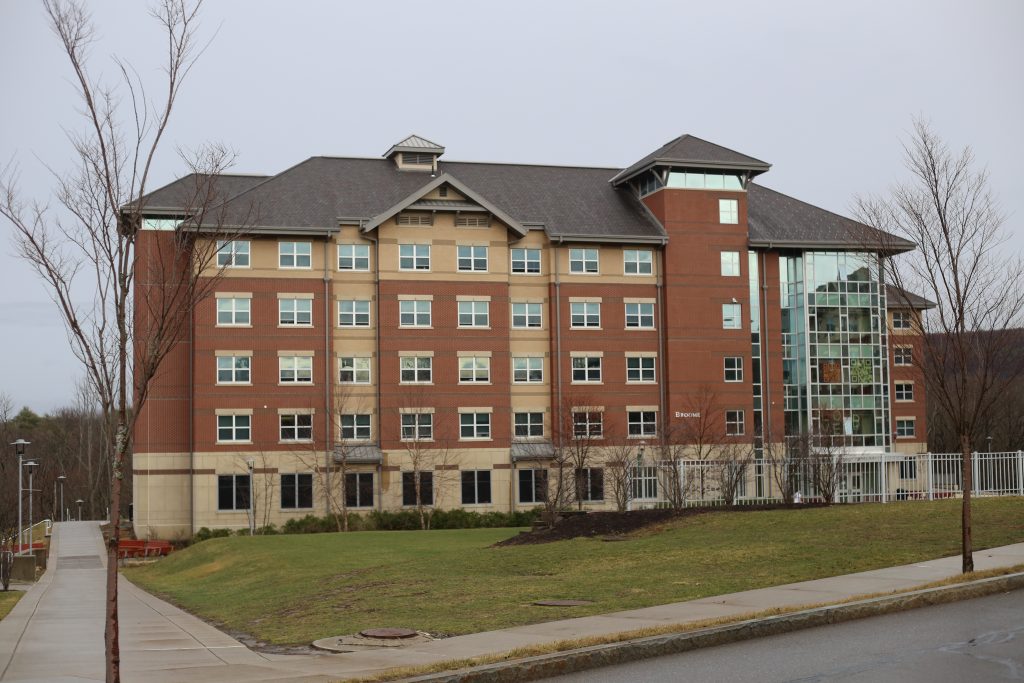As COVID-19 vaccines are becoming more readily available, Binghamton University students are signing up to receive theirs.
While not every student is eligible for the vaccine yet, those who fall into New York state’s Phase 1a or 1b are. According to New York state, these phases include numerous people, such as New York residents over the age of 50, police and investigators, public safety communications personnel, in-person university faculty and essential in-person staff, including grocery store workers, those living or working in homeless shelters, health care or other high-risk essential workers, restaurant employees and for-hire vehicle drivers.
If students do not qualify for the vaccine based on employment, they may qualify due to underlying health issues. Some conditions that fall into this category include cancer, chronic kidney disease, pulmonary diseases, intellectual and developmental disabilities, heart conditions, obesity, blood diseases, diabetes, neurological conditions and liver disease. The complete list of COVID-19 vaccine eligibility can be found here.
One misconception about the COVID-19 vaccine is that all students who live in residential communities are eligible to receive it under the congregate setting clause. This is not true — congregate living, as defined by the New York state website, includes living situations such as group homes or community residences. College residence halls do not fall into either of these categories, according to the New York State COVID-19 Hotline.
Some students have received conflicting information about this. However, New York state said they will turn students away who attempt to get the vaccine under the congregate setting clause.
Benjamin Prigg, an undeclared freshman, initially signed up under the congregate setting clause but ultimately relied on an underlying condition to receive his vaccine.
“I found out that [using congregate setting] would not work before the appointment,” Prigg said. “So I brought proof of an underlying condition.”
For those who do qualify, the closest vaccine site is located at 10 Gannett Drive in Johnson City. This site is located on land owned by the BU Foundation and is across the street from a bus stop that students can access on the Broome County Transit bus line. The location will administer the Pfizer vaccine to any eligible individual with a valid appointment made through the New York state website.
Upon arrival at this vaccine site, eligible individuals will go through a series of checkpoints in which they will be asked to prove their eligibility. They will be asked to provide photo identification, proof of eligibility and proof of appointment before receiving the vaccine. After receiving the vaccine, patients are required to be observed for 15 minutes before leaving the site. If a patient has a history of allergies, they are required to be observed for 30 minutes.
Zagham Shah, a sophomore double-majoring in applied physics and cinema, received the vaccine due to showing proof of employment status.
“I was required to provide a recent pay stub indicating that I am an essential worker,” Zagham said. “I work at a bakery back home where I make sandwiches and have direct contact with customers.”
Not all students had the same experience. Prigg was not asked to show proof when he received his vaccine on March 18.
“I’m pretty confident that the reason was because [vaccine site workers] were so busy,” Prigg said. “They were trying to get through people as quickly as possible, and they may have decided not to check everyone. That or it was a simple mistake.”
Prigg is not the only student who was not asked to show proof. Madelyn Yevoli, a sophomore majoring in economics, also was not required to show proof.
“They only asked for my identification, health insurance and appointment information,” Yevoli said. “They did not ask me for anything else.”
Students can check their eligibility here.



